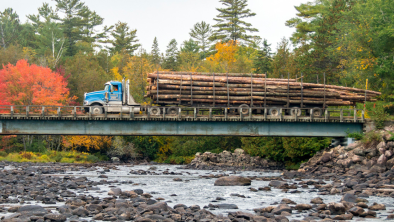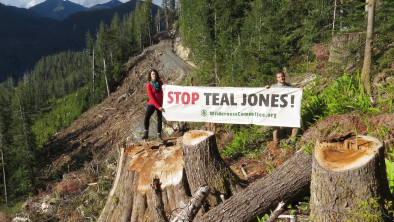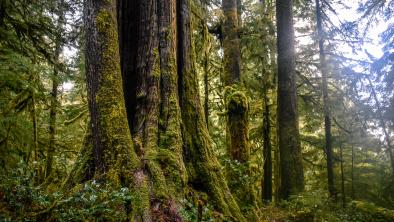Opinion: Shipping raw logs out of B.C. is bleeding our forest industry and communities dry
Vancouver Sun

The mill, owned by Catalyst, stands at the waterfront in Port Alberni, a city that was once the economic envy of much of Canada. At one time, it enjoyed among the highest average per capita incomes anywhere in the country.
Yet one by one, the lumber, panel, pulp and paper and value-added mills that dominated the local economy either closed or scaled way back. What was once a poster child for what our forest industry could be is now a city with one of the worst child poverty rates in the province.
Now, a bad situation is poised to get much worse.
The Catalyst mill employs 330 people. When it has the wood fibre to operate, it is also one of Port Alberni’s major sources of revenue, generating $4 million annually in industrial property taxes. If today’s temporary closure becomes tomorrow’s permanent loss, Catalyst’s closure will be a significant blow to the community.
Such an important social and economic fact, however, apparently holds no sway with our provincial government. Over the past four years, they have allowed more and more raw, unprocessed logs to leave B.C. than at any corresponding four-year period in history.
That includes huge numbers of raw logs routinely leaving the docks in Port Alberni, within eyesight of the Catalyst mill.
In late February, the ocean freighter Longview Logger arrived at the city’s docks, where it commenced loading tens of thousands of unprocessed logs. Once room ran out to load more logs into the vessel’s crammed hold, the ship pulled anchor and headed down Alberni Inlet for the long journey across the Pacific Ocean.
According to research recently published by the Canadian Centre for Policy Alternatives and supported by two forest industry unions and three environmental organizations, last year’s exports of raw logs alone could have generated a very conservatively estimated 3,600 additional jobs in our forest industry.
If just a fraction of the roughly 6.3 million cubic metres of logs that were exported to out-of-country buyers in 2016 been processed in domestic sawmills instead, there would have been more than enough wood fibre available at fair market prices on the domestic market to furnish Catalyst and other fibre-starved pulp and paper in B.C. with their needs.
Unfortunately, provincial government policies have left the door wide open for companies to close mills in B.C. and export raw, unprocessed logs instead. In fact, B.C.’s two biggest log exporters by far — TimberWest and Island Timberlands — do not operate a single mill between them.
A major worry is what happens if other companies that are significant log exporters and also operate some of the coast’s remaining sawmills — companies like Western Forest Products — decide to pack it in as far as their milling operations are concerned and export even more raw logs instead.
The result of all of those exports is the continued bleeding of our forests and forest industry jobs. Something is deeply wrong when millworkers can literally stroll from the gates of their idled mills to nearby docks and watch the bounty of our forests get shipped away in its most unprocessed form.
The latest curtailment at a B.C. pulp mill is the result of B.C. Liberal policy that removed the requirement for local job creation in forestry. Instead, forestry giants have been allowed to get even richer by stripping our forests, increasing log prices for foreign buyers, and leaving B.C. communities with depleted forests and without the jobs that sawmills and pulp and paper mills once provided.
In scrapping policies that once placed a priority on local jobs in communities like Port Alberni, the B.C. Liberals sided with forestry multinationals. Our coastal forests and communities now pay the highest price.
On the eve of a provincial election, the time is finally due for a debate about where forest policy in this province is going. How do we ensure that we have healthy forests for future generations and also healthy communities where jobs are generated for local benefit, utilizing the wood that comes from local forests?
One thing we can all agree on is that we begin to answer that question by better protecting the natural bounty that we have here at home — and that when we do use our forests to generate jobs, we do so in ways that maximize opportunities in our communities.
Scott Doherty is executive assistant to the Unifor National President. Unifor is Canada’s largest private sector union and represents Catalyst’s workers.
Torrance Coste is the Vancouver Island Campaigner at the Wilderness Committee, Canada’s people-powered, citizen-funded environmental organization.
Read the original article here


